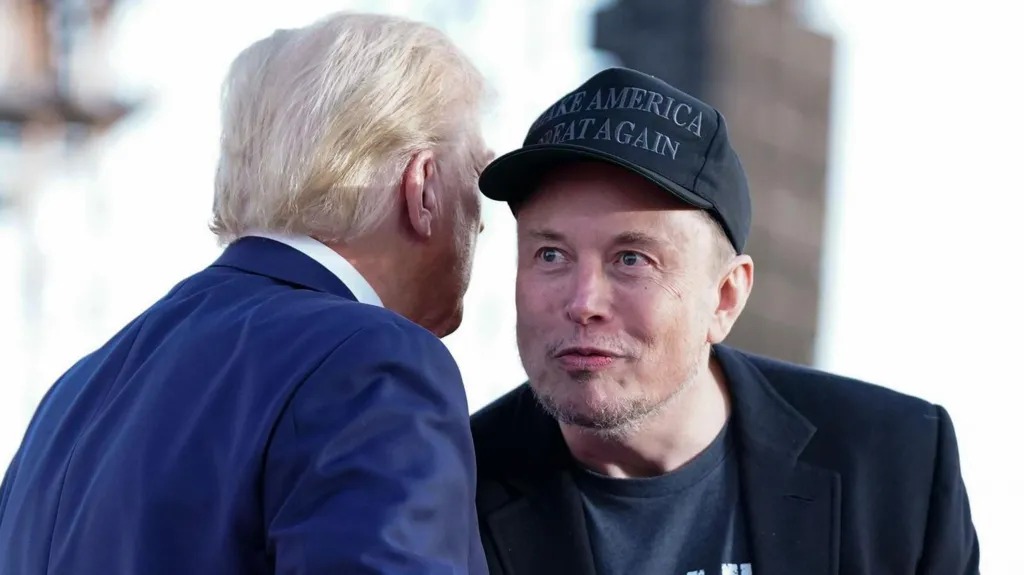
Why Is Elon Musk Becoming Donald Trump’s Efficiency Tsar?
Billionaire tech mogul Elon Musk has been appointed to lead the newly established Department of Government Efficiency (Doge) under President-elect Donald Trump’s administration. In this role, Musk will focus on reducing government spending, slashing excess regulations, and streamlining federal operations. Known for his cost-cutting approach at companies like Tesla and X (formerly Twitter), Musk’s methods may signal drastic changes for the government’s structure and functionality.
Musk’s Track Record of Cost-Cutting and Efficiency
Elon Musk’s leadership at various companies offers clues to his approach as head of Doge. In 2022, after acquiring Twitter (now X), Musk made sweeping changes, reducing the workforce from 8,000 to 1,500 and implementing monetization strategies to offset declining ad revenue. Critics argue that these changes fostered an environment for misinformation, yet Musk insists they were necessary to keep X operational.
This experience may influence Musk’s approach within the Department of Government Efficiency as he attempts to bring private-sector efficiency into public administration. His goal of cutting the government’s $6.5 trillion budget by $2 trillion aligns with his belief that bureaucratic functions can often be streamlined.
Ideology and Influence in the New Administration
As head of Doge, Musk gains not only a platform for reform but also influence within Trump’s administration. Professor Thomas Gift of University College London notes that Musk’s role is “informal yet influential,” and his position gives him proximity to Trump on matters ranging from technology to policy reform. With a reported $200 million donation to Trump’s campaign and appearances at rallies, Musk has demonstrated his support, cementing his place among Trump’s trusted advisers.
Reducing Regulations Amid Personal Business Interests
Musk’s appointment comes with questions regarding his business motivations. Both Tesla and SpaceX face regulatory challenges, with Tesla under scrutiny for labor practices and SpaceX facing fines for licensing issues. Musk has publicly criticized the Federal Aviation Administration (FAA) and other regulatory bodies, accusing them of stifling innovation and claiming that bureaucracy could hinder his ambition to establish a human presence on Mars.
While Musk’s actions as efficiency tsar could benefit his enterprises by easing regulatory constraints, his close involvement in Trump’s administration appears driven by a broader ideological stance. Professor Gift remarks that “while Musk has vested interests in the regulatory landscape, his commitment to reform extends beyond business motivations.”
Reward for Loyalty and Potential Impact on Foreign Policy
Musk’s support for Trump marks a new chapter in his political involvement, especially as he cannot pursue public office himself. As a key adviser in the new administration, Musk gains influence in significant areas, including technology policy and international relations. In an early indication of his involvement, Musk participated in a post-election call between Trump and Ukrainian President Volodymyr Zelensky, signaling potential input on foreign policy.
The Road Ahead for Doge and Musk’s Role
As the Department of Government Efficiency takes shape, Musk faces the challenge of balancing cost-cutting measures with practical governance needs. His ambitious objectives will be tested by the complexities of public administration, particularly as he seeks to implement his vision of an efficient, leaner government.
By bringing private-sector practices to the federal level, Musk’s influence could reshape the U.S. government’s approach to management and policy. Whether his changes will enhance government efficiency or face resistance from bureaucratic structures remains to be seen. For now, Musk’s role as Trump’s efficiency tsar offers a unique experiment in blending corporate and government strategies.
External Link:
Read more about Elon Musk’s new government role



